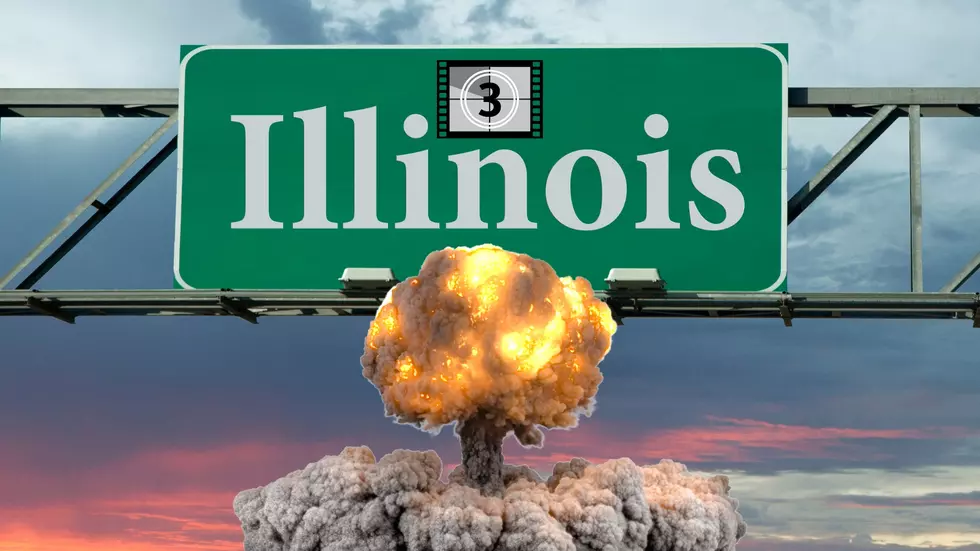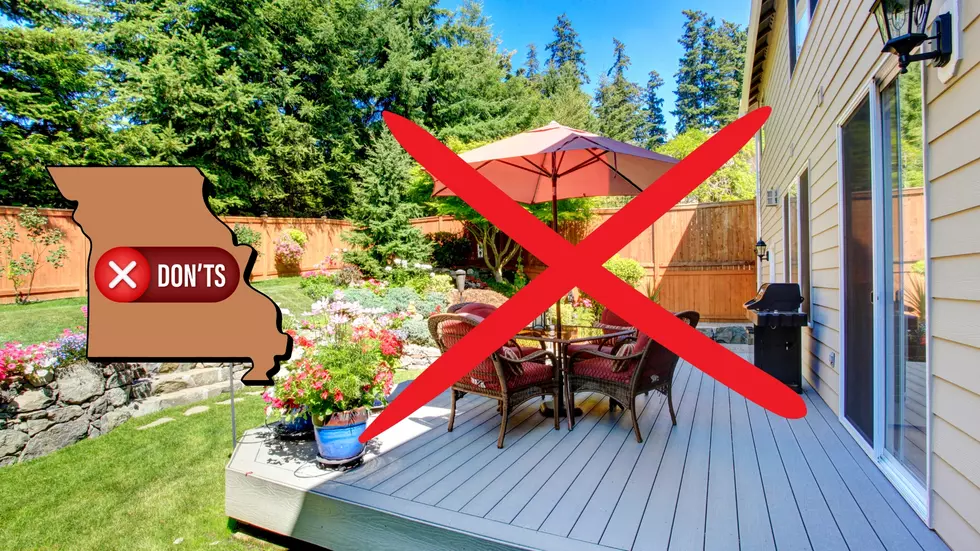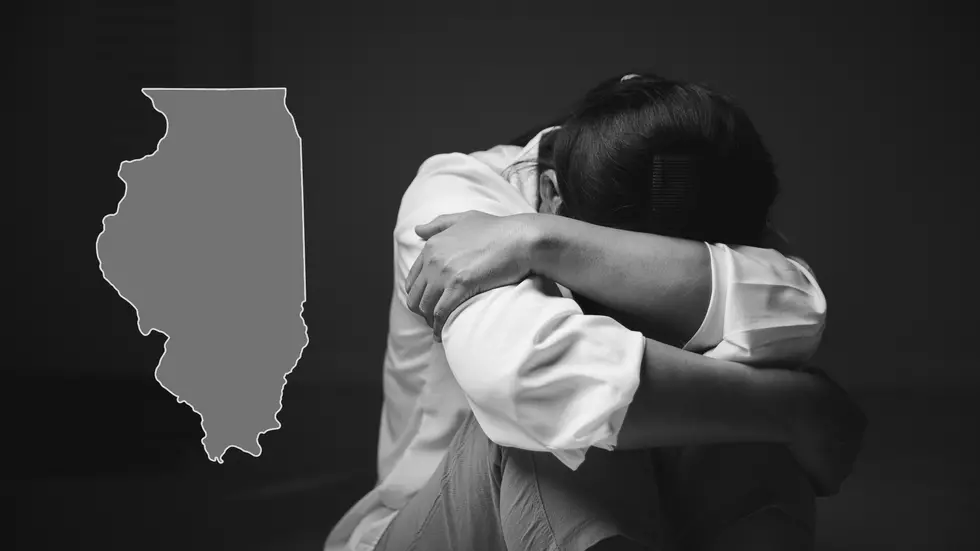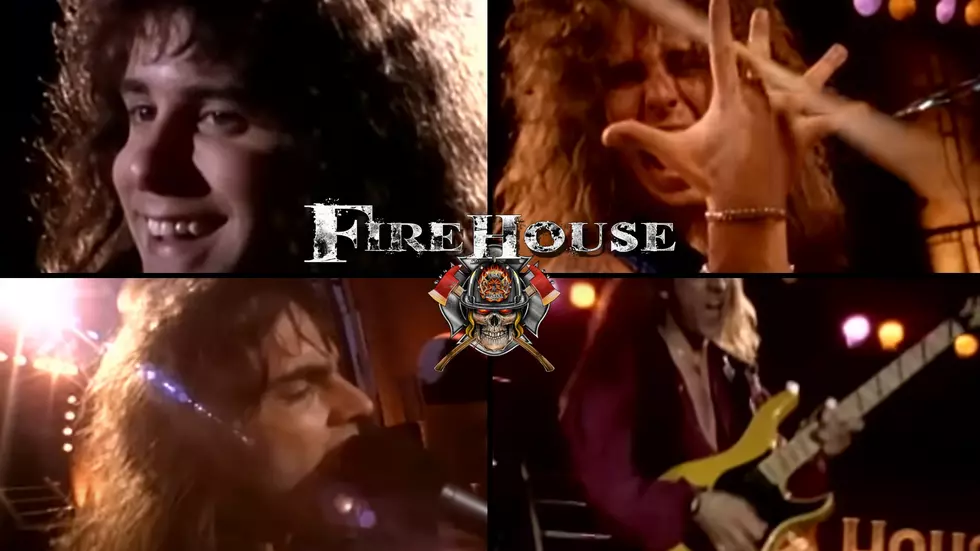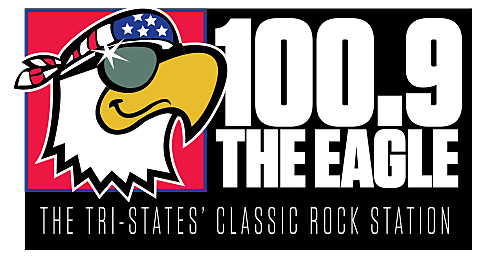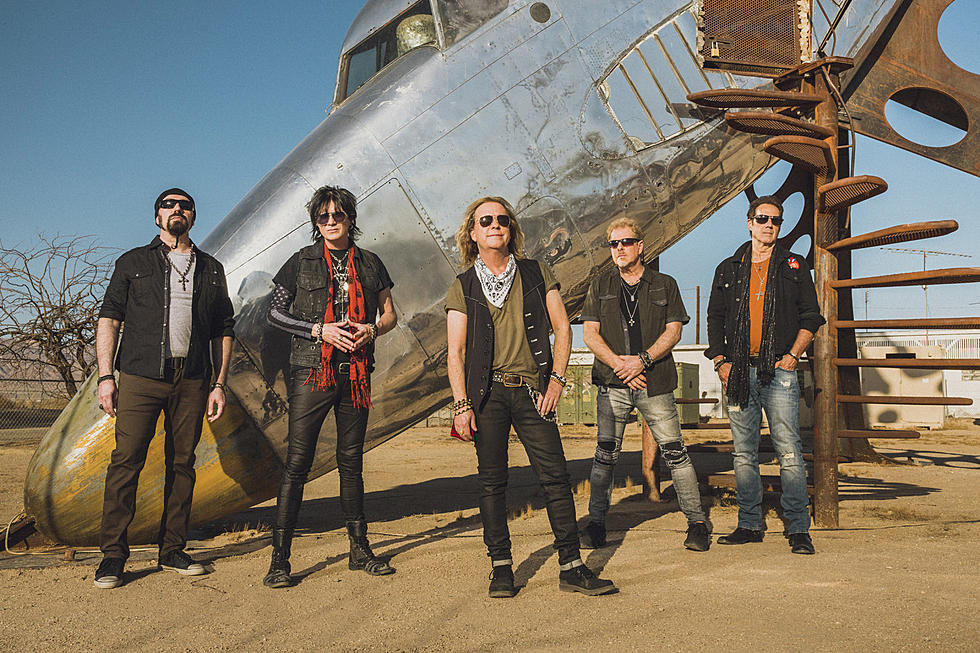
Night Ranger Rock Past Pandemic, ‘Lame’ Zoom Calls With New Album
Night Ranger have faced their share of adversity over the years (including having their record label fold early in the glory years of the ‘80s when they were first getting started), so although the chances were good that a pandemic could have knocked them back on their heels a bit, they just had to slightly change course to keep rockin’.
The group came away with ATBPO, their 13th studio album, which was released on Aug. 6.
While the band faced various challenges in creating the music, frontman and bassist Jack Blades explains in the interview below that Night Ranger ultimately emerged with another strong and varied collection of material that hearkens back, not only to their prime era, but also the exploratory feel of albums like 1998’s Seven and 2007’s Hole in the Sun.
At the core, the band demonstrates that they still haven’t lost their knack for crafting persistent melodic hooks that quickly find a home in listeners' subconscious. The anthemic “Dance,” while lyrically inspired by the pandemic -- and all of the things we couldn’t do -- also features some interesting musical threads, including a strong yet subtle Thin Lizzy vibe.
The twin guitars on “Hard to Make it Easy” give way to a tale involving “shots and cocaine” and “funky bars.” What decade are we living in? It’s hard to tell sometimes, but Night Ranger has never been a band bound to any specific time period.
That’s part of the appeal of ATBPO, it’s an album that adheres to the group’s tried and true trademarks, while indulging in a good bit of experimentation here and there -- and as a good record should, it takes you on a journey -- one that’s worth traveling for.
For your past few records, the band has gotten in the room together and just jammed. You had to change that approach because of the pandemic.
Yeah, I hated it. It frickin’ sucked, big time. It completely did. Originally, you know, we can get dinner and a room, pound out the stuff like we’ve done. Somewhere in California, that was the great awakening of Night Ranger. We realized, we need to go back to our roots. We need to go back to where we all got back in a room, jammed on a song and then immediately went over and recorded it. Put it down right away and go to the next one, do that, do that. We’ll finish the lyrics later. Just keep it going. That made for a vibrant, exciting, killer kick ass album.
Not being able to do that with this record was quite a challenge. We initially started, Kelly [Keagy] and Brad [Gillis] and I did a couple of Zoom calls, but those were lame, you know what I mean?
Oh yeah.
So we just started sending songs around. I sent like seven or eight songs around to everybody and said, “Hey, what do you think of these?” And everybody started adding things. But it was a two-edged sword. It was great that everybody could sit in their studio and add what they wanted to add and everything like that. But in the other respect, some of these songs had like 150 tracks on them.
I mean, like, [Blades screams in a comical tone]. Our keyboard player, Eric Levy, he’d put 15 tracks on a song, or 12 pads. He hadn’t heard what Brad was going to play. Brad hadn’t put anything on it, so suddenly Brad puts stuff on. It doesn’t work with Eric’s thing and then Keri [Kelli] has guitar parts and he and Brad haven’t figured out what’s going on.
It was a lot of, “Hey man, what happened to my parts?” “Hey, you pulled this out!” “Hey, what’s here?” But you know what? After we all realized [what was coming together] and the engineer and I were going through everything, everybody was like, “Okay, this is great. This sounds good.”
Everybody had their points and their counterpoints and everything like that. I think because of the fact that we couldn’t get together, we really wanted to make this album have a groove to it. So everybody focused 110% on that idea of a groove happening. Because of that, I think this album has a better groove than some of our other records.
You have written in a lot of different situations. This had to really be kind of unprecedented for you. Have you ever done anything writing-wise that was close to this?
The only people that got together, Keri came up to my place, to my studio here, for a couple of three days. “Coming for You,” he had the idea for [that one] and we wrote the lyrics and fleshed it out and made it great. He had [another] real cool track and I added some stuff and it became the song “Monkey,” which is a really killer rock track.
Brad had the music all put together for “Breakout,” but he didn’t have any lyrics or a chorus. He had some other parts in there, so we kind of did a road map and worked it all around. It was kind of stuff like that which happened, but really, Keri and I, out of the whole band, were the only two guys that got together when we made this record.
Keri and Eric both seem like they’ve brought good energy into this band.
They’re the greatest, both of those guys. I can’t imagine doing it without them. They’re so good. Eric is such a straight and narrow guy that just keeps it all going, like musically holds everything together. He plays great keyboards and everything like that. Keri is so soulful. He’s got this groove, man, that just locks everything together. And everybody’s so fun. We just have a fun time on the road.
“Dance” is such a cool tune on this new Night Ranger album. It’s a little bit of a sleeper attack, arriving later in the album. It has a great groove that feels very Night Ranger, yet it feels different.
It’s one of my favorites. That whole song, I kind of came up with the idea and wrote that song, because here we are, going through everything that we went through in the last year and a half. Like, you can’t touch people, you can’t hug people, you can’t be near people. Nobody can be together. You can’t do this, you can’t do that.
I was thinking to myself, “Man, it’s like, all I want to do is dance with people. All I want to do is hang out with people. All I want to do is hug people. Spend the night. Hang out. Do all of that kind of stuff." That was really the inspiration. There’s several titles, like “Breakout,” I mean, think about it, “Break out of all of this stuff.” You know, “The Hardest Road,” everything that we went through.
We named the album ATBPO, And The Band Played On, because the band, we went through so much stuff that I probably won’t even go into it. Personal stuff as well as the pandemic and everything like that. Through it all, we just kept rockin’ and rollin’ and making this record. We kept pushing it and pushing it and pushing it.
Then, what do you know, it turned out, so I thought, “Well, that would be a perfect title.” And The Band Played On. Kelly [Keagy] said, “Why don’t we use the initials?” We always loved that, OU812, the Van Halen record, and stuff like that. We’re like, “Yeah, that would be great!”
The couple of videos you all have made for this album so far are fun. “Bring It All Home to Me” and “Breakout.” How did you guys land on the concept for those?
We were trying to figure out exactly what we were going to do and how we were going to go about doing it. A friend of Brad’s is a video director. Someone suggested the photographer, Kevin Baldes, who plays bass in the band Lit. Kevin was the photographer that took all of our photos and everything like that.
He said, there’s this place called the Salton Sea, which is out below Palm Springs in Palm Desert, California. It’s almost like [the] Dead Sea. It’s crazy. The scenery is really stark and the landscape is crazy. There’s a lot of great stuff we can do with a lot of great shots. We saw that and sent a team out to scout it and said, “Dude, this is the perfect place to make the video. We gotta do it out here.” We did it there and it turned out great.
People seem to love the moment in “Bring It All Home to Me” where you guys are all singing together there in the doorway. Was there a good point of inspiration for that?
I said, “Come on, let’s all get in the doorway and stand up like the Beatles first record, you know, Meet the Beatles. Let’s do it like that Queen thing where everybody goes, “Is this the real life,” you know, just sing, “Baby, baby, baby,” just for spoof! It was just a crazy thing to do and it was wonderful. That’s Night Ranger’s sense of humor.
You guys had your share of fun making music videos in the ‘80s. I don’t know if it was fun -- I know it was a lengthy process back then. But for instance, the shoot for “Four in the Morning,” you have the camel, the space chicks, that seems like that must have been quite an experience.
That was wild. We were carrying through the theme of “Sentimental Street,” the first song off of the 7 Wishes record. We’re in a plane, the cover of the 7 Wishes album, the plane goes down in the water, we all hit the lifeboats and we come ashore. Then you have these dreams. We kind of wanted to carry that theme through. We did it again down in Southern California and thought, “Let’s just have a bunch of crazy stuff happen.”
Let’s have it [be like] Planet of Women, like the bad ‘50s movie. Make sure that there’s strings hanging down from the bad spaceship, so you can see -- we wanted to make it really campy. Real campy. We wanted to make it just like the bad sci-fi movies from the ‘50s and early ‘60s that were so lame and shit that you see ‘em now and you see strings of the things going like this [Blades makes animated gestures].
We just wanted to have fun. It was our third album. We’d made the serious videos, we made the “Sister Christian” [kind of] videos, “(You Can Still) Rock in America,” the band videos, the “Sing Me Away” video, “Don’t Tell Me You Love Me” on the train tracks.
It’s like, okay, we’ve got to do something. You know, 1985, man, that was the era when everybody was doing a lot of great stuff. That’s what we did and we kind of threw it all together. We carried that through to the next song, “Goodbye.” When you’re selling millions of records and making tons of dough for the record company, they let you do stupid shit things.
You can come up with batshit ideas and they’re like, “Okay.” For “Goodbye,” let’s rent out Electric Lady, Jimi Hendrix’s studios in New York, for a week and get the mojo and feel what that’s like. They’re like, “Okay!” They paid for it and that’s what we did for that song, “Goodbye.” We wanted to get that vibe of Jimi Hendrix. After a while, they let us do stupid things. But those things actually turned out pretty fun, I think.
Top 50 American Bands
More From 100.9 The Eagle, The Tri-States' Classic Rock Station
